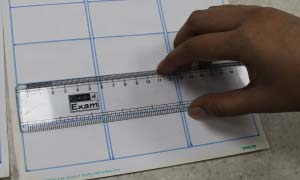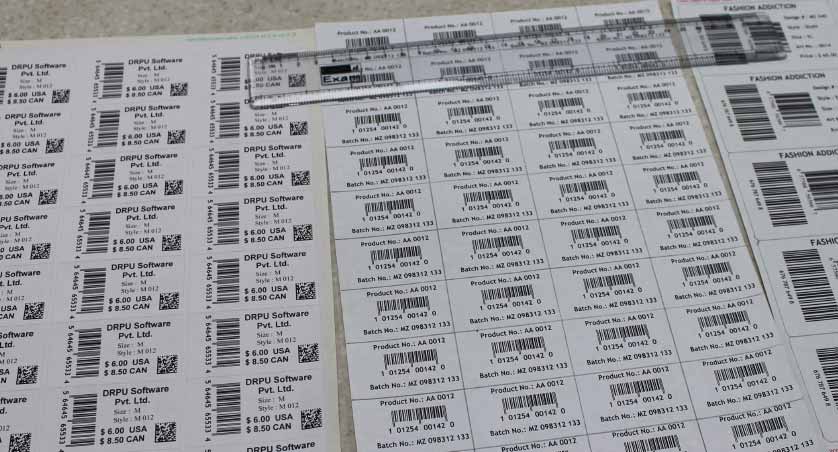Posted By: Digital Deeper | Updated On:
What types of labels can Barcode Label Maker Software support, and can I create labels in custom sizes and shapes?
Barcode Label Maker Software can support a wide range of label types, including those commonly used in the industry such as thermal transfer labels, direct thermal labels, inkjet labels, laser labels, and more. The software can also create custom labels, allowing users to design labels in any size or shape they need.
Barcode Label Maker Software can support a variety of label types, including standard label sizes and custom label sizes. Some common label sizes that Barcode Label Maker Software can support include:

- • 1x2 inch labels
- • 2x4 inch labels
- • 4x6 inch labels
- • 8.5x11 inch labels (also known as full-page labels)
In addition to these standard label sizes, Barcode Label Maker Software may also support custom label sizes and shapes. This can be useful if you need to create labels for non-standard items or if you want to create labels with a specific shape or design.
To create custom labels, you may need to adjust the settings in your Barcode Label Maker Software. This may involve selecting a custom label size or shape, adjusting the margins or spacing on the label, or selecting a different label template or layout. Some Barcode Label Maker Software may also allow you to import custom label designs or images to use as the basis for your labels.
Types Of Barcode Label
In addition to supporting a variety of label types, Barcode Label Maker Software allows users to create custom labels in any size or shape they need. This can be useful for creating labels for unique or irregularly shaped items, or for creating labels that are a specific size to fit a particular application.
Here are some common label types that Barcode Label Maker Software can support:
Thermal transfer labels:
These labels are printed using a thermal transfer printer, which applies heat to a wax or resin ribbon, transferring the ink onto the label. Labels are commonly used for barcoding in industries such as manufacturing, logistics, and healthcare.
Direct thermal labels:
These labels are printed using a direct thermal printer, which applies heat directly to the label, creating an image. Direct thermal labels are commonly used for short-term labeling applications, including as shipping label and mailing labels, receipts.
Inkjet labels:
These labels are printed using an inkjet printer, which sprays ink onto the label to create an image. The inkjet labels are commonly used for high-quality, full-color labels in applications including as product labeling, mailing labels and marketing.
Laser labels:
These labels are printed using a laser labels printer, which uses toner to create an image on the label. Laser labels are commonly used for high-volume printing applications, including as mailing labels, marketing and shipping labels and product labeling.
Overall, Barcode Label Maker Software provides users with a flexible and versatile tool for creating a wide range of labels, from standard barcode labels to custom labels in any size or shape. This can help businesses and organizations improve efficiency and accuracy in labeling and inventory management.

Barcode labels can be applied to a wide range of surfaces, including:
- 01
Paper:
Barcode labels can be printed on plain paper, making them a cost-effective option for many applications. However, the durability of paper labels may vary depending on the type of paper used.
- 02
Cardboard:
Barcode labels can be applied to cardboard boxes and containers, making them a popular option for shipping and logistics operations.
- 03
Plastics:
Barcode labels can be applied to a variety of plastic materials, including polypropylene, polyethylene, and PVC. These labels are often durable and weather-resistant, making them suitable for outdoor and industrial applications.
- 04
Metals:
Barcode labels can be applied to metal surfaces using special adhesive or etching techniques. These labels are often used in manufacturing and industrial settings, where durability and resistance to extreme temperatures and chemicals are important.
- 05
Glass:
Barcode labels can be applied to glass surfaces using special adhesives that are designed to adhere to non-porous materials. Glass barcode labels are often used in laboratory and medical settings.
- 06
Fabrics:
Barcode labels can be applied to fabrics, such as clothing and linens, using heat transfer or adhesive techniques. These labels are often used in retail and hospitality settings.
In general, barcode labels can be applied to any surface that is clean, dry, and flat. However, the choice of label material and adhesive may vary depending on the specific application and environmental conditions, such as exposure to moisture, heat, and chemicals.